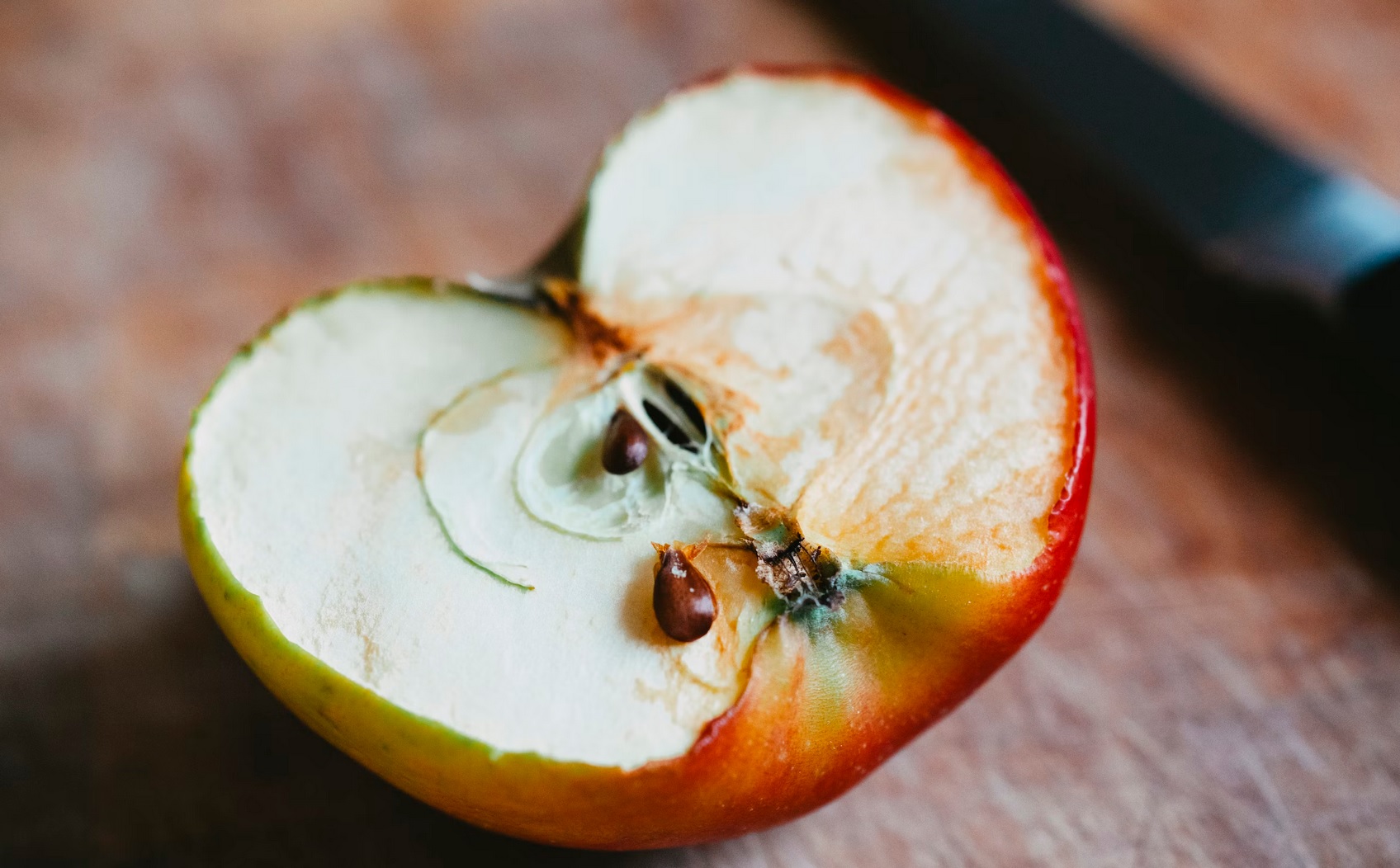NordenBladet – Apples, often celebrated as a symbol of good health, are a favorite fruit for many. However, an enduring myth suggests that the seeds of apples contain cyanide, raising concerns about the potential health risks associated with their consumption. NordenBladet will delve into the science behind apple seeds, cyanide, and why the notion of cyanide toxicity from eating apple seeds is largely a misunderstanding.
Understanding Apple Seeds:
Apple seeds do indeed contain a compound known as amygdalin, which can release cyanide when metabolized. However, it is crucial to put this fact into perspective. The levels of amygdalin in apple seeds are relatively low and not typically harmful to humans when consumed in moderation. To put it simply, the cyanide content in apple seeds is far too minimal to cause harm with normal consumption.
Cyanide Levels in Apple Seeds:
Research has shown that the cyanide levels in apple seeds are generally harmless to humans. To illustrate this point, one would need to consume an exceptionally large quantity of apple seeds in a single sitting to potentially reach harmful levels of cyanide intake. This would be a daunting task as it would require eating hundreds of apple seeds, far more than anyone would naturally consume when eating an apple.
Detoxification Mechanism:
Moreover, the human body possesses a natural detoxification mechanism to process small amounts of cyanide that may be encountered in everyday life. Our body’s enzymes are capable of breaking down cyanide and rendering it harmless, provided the levels are not excessive. This ability to detoxify cyanide is well within the capacity of a healthy individual, even if they were to ingest a few apple seeds.
So, the notion that eating apple seeds poses a significant health risk due to cyanide toxicity is largely a myth. While apple seeds do contain amygdalin, the levels of cyanide produced from their consumption are minimal and unlikely to harm humans. Apples, consumed in their entirety, remain a nutritious and delicious addition to a healthy diet. However, it is still advisable to avoid consuming a large quantity of apple seeds to ensure that cyanide levels remain well within safe limits. As with any aspect of nutrition, moderation is key, and there is no need to worry about the cyanide content when enjoying this popular fruit.
Featured image: Unsplash
Read also:
Which is healthier: Eating apples with or without skin?

